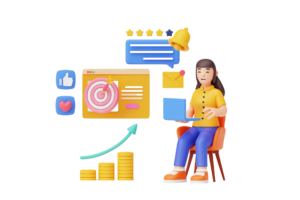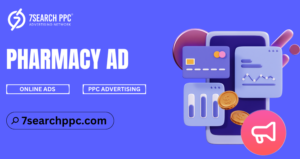Everything You Need to Know About Healthcare Application Development
In recent years, the healthcare industry has witnessed a significant transformation driven by technology. One of the most notable advancements is the rise of healthcare applications. These applications have become essential tools for healthcare providers, patients, and administrators alike, improving communication, enhancing patient care, and streamlining operations. If you’re considering developing a healthcare app, here’s everything you need to know about healthcare application development.
Understanding Healthcare Applications
Healthcare applications are software solutions designed to support various aspects of healthcare delivery. They serve multiple purposes, including:
- Patient Management: Applications that allow healthcare providers to manage patient information, appointments, and medical records efficiently.
- Telemedicine: Apps enabling remote consultations between patients and healthcare professionals, which have become increasingly important, especially during the COVID-19 pandemic.
- Health Monitoring: Applications that track and analyze health metrics, such as heart rate, blood pressure, and medication adherence, empowering patients to take charge of their health.
- Healthcare Administration: Software solutions that streamline administrative tasks, such as billing, scheduling, and reporting, enhancing overall operational efficiency.
- Patient Education: Applications that provide patients with educational resources about their health conditions and treatment options.
Why Invest in Healthcare Application Development?
Investing in healthcare application development can yield numerous benefits for both healthcare providers and patients. Here are some compelling reasons to consider:
1. Improved Patient Engagement
Healthcare apps empower patients to take control of their health by providing easy access to their medical records, appointment scheduling, and medication reminders. By actively engaging patients, healthcare providers can foster better communication and enhance overall patient satisfaction.
2. Enhanced Efficiency
Healthcare applications streamline workflows, allowing healthcare providers to manage patient information more efficiently. By automating administrative tasks, providers can focus more on delivering quality care rather than getting bogged down by paperwork.
3. Telehealth Capabilities
Telemedicine has gained immense popularity, allowing patients to consult healthcare professionals remotely. This not only increases access to care, especially for those in rural or underserved areas but also saves time and resources for both patients and providers.
4. Data Analytics for Better Decision-Making
Healthcare apps can collect and analyze vast amounts of data, providing valuable insights into patient behavior, treatment outcomes, and operational efficiency. By leveraging data analytics, healthcare providers can make informed decisions that enhance patient care and improve overall performance.
5. Compliance with Regulations
With stringent regulations governing patient data privacy and security, a well-developed healthcare application can help ensure compliance with laws such as HIPAA (Health Insurance Portability and Accountability Act) in the U.S. and similar regulations globally.
Key Features of Healthcare Applications
When developing a healthcare application, it’s crucial to incorporate features that enhance user experience and functionality. Here are some essential features to consider:
1. User-Friendly Interface
An intuitive and user-friendly interface is vital for any healthcare app. Patients should be able to navigate the app easily, access information quickly, and complete tasks without confusion.
2. Secure Messaging
Secure messaging capabilities allow patients and healthcare providers to communicate effectively while ensuring that sensitive information remains confidential.
3. Appointment Scheduling
Integrating appointment scheduling features enables patients to book, modify, or cancel appointments effortlessly, reducing no-show rates and improving efficiency.
4. Health Monitoring and Tracking
Including features that allow users to track their health metrics, such as weight, blood pressure, and medication adherence, empowers patients to manage their health proactively.
5. Telemedicine Functionality
Integrating telemedicine features such as video calls, chat, and remote monitoring enhances accessibility and convenience for patients seeking care.
6. Data Security Measures
Given the sensitive nature of healthcare data, robust security measures are essential to protect patient information and maintain compliance with regulations.
The Development Process
Developing a healthcare application involves several key steps:
1. Define Your Objectives
Start by identifying the specific goals of your application. Are you looking to improve patient engagement, streamline operations, or enhance telemedicine capabilities? Clear objectives will guide your development process.
2. Conduct Market Research
Understanding your target audience and their needs is crucial. Conduct market research to identify gaps in existing solutions and ensure your app addresses these needs effectively.
3. Create a Prototype
Develop a prototype of your application to visualize its functionality and design. This step allows you to gather feedback from potential users and make necessary adjustments before full-scale development.
4. Development and Testing
Once the prototype is finalized, move on to the development phase. Collaborate with experienced developers to create a robust and scalable application. Rigorous testing is essential to identify and resolve any issues before launching the app.
5. Launch and Maintenance
After thorough testing, launch your application. However, the process doesn’t end there. Regular updates and maintenance are crucial to ensure the app remains functional, secure, and up-to-date with the latest technologies and regulations.
Choosing the Right Development Partner
Selecting the right development partner is crucial for the success of your healthcare application. Look for a healthcare app development company in India that has a proven track record of delivering high-quality solutions. A partner like Comfygen can offer the expertise, experience, and support you need to bring your vision to life.
Conclusion
Healthcare application development is a vital investment that can significantly enhance patient care and operational efficiency. By understanding the key aspects of development, including features, benefits, and the development process, you can make informed decisions that lead to successful applications.
If you’re ready to embark on your healthcare app development journey, partnering with a reliable and experienced company is essential. With the right approach and a commitment to quality, your healthcare application can revolutionize the way patients and providers interact, ultimately improving health outcomes and driving innovation in the industry.














Post Comment